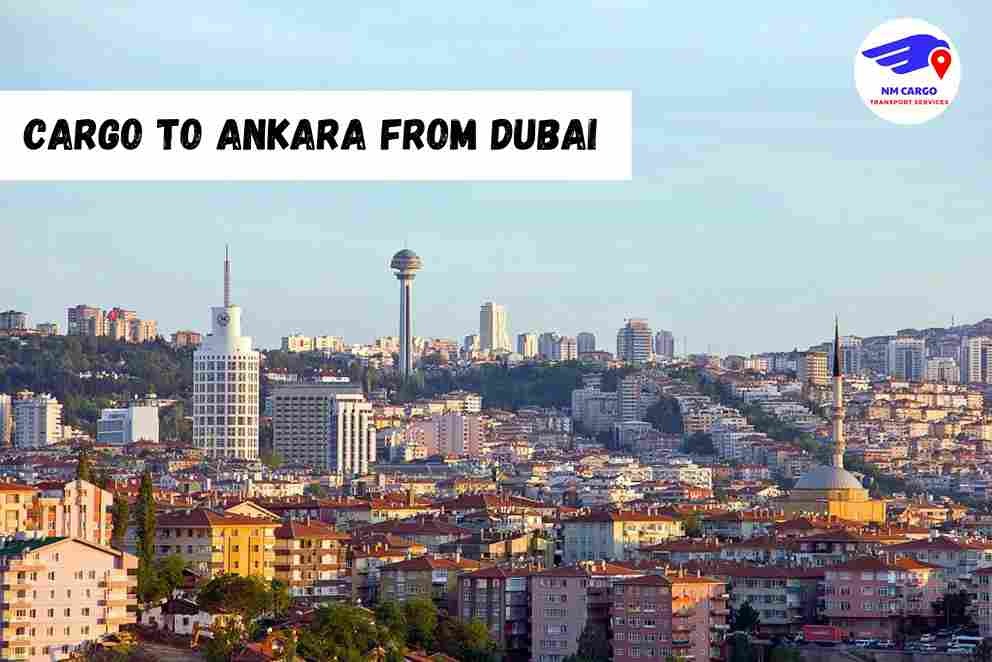When it comes to international shipping, efficient and reliable cargo services are essential for businesses looking to expand their reach. This is particularly true for the transportation of goods between major cities such as Dubai and Ankara. As the capital of Turkey, Ankara serves as a crucial hub for various industries, while Dubai stands as a key global trade center. This article delves into the logistics of shipping cargo from Dubai to Ankara, offering insights into the process, requirements, and best practices for a seamless experience.
Understanding the Importance of Efficient Cargo Services
In today’s globalized economy, businesses rely heavily on effective logistics to maintain their supply chains. Shipping cargo from Dubai to Ankara is a vital link for companies engaged in trade between the Middle East and Turkey. Efficient cargo services ensure timely delivery, cost-effectiveness, and reliability, which are critical factors for maintaining competitive advantage and meeting customer demands.
Stay Updated with PayPlus Card Balance Check Online
Keeping track of your PayPlus card balance is crucial, and doing it online saves time. Visit PayPlus Card Balance Check Online for a smooth experience. This platform allows you to check your balance securely and stay on top of your spending.
Key Factors Influencing Cargo Shipping
Several factors can impact the shipping process from Dubai to Ankara. Understanding these elements helps businesses make informed decisions and optimize their logistics strategies.
1. Shipping Routes and Modes
- Air Freight: The fastest method for shipping cargo between Dubai and Ankara is via air freight. This mode is ideal for high-value, time-sensitive goods. Flights between Dubai International Airport (DXB) and Ankara Esenboğa Airport (ESB) are frequent, offering a quick turnaround time.
- Sea Freight: For larger volumes or less time-sensitive shipments, sea freight is a viable option. While this method is slower, it is often more economical. Cargo ships can depart from Dubai’s Jebel Ali Port and arrive at Turkey’s major ports, such as Istanbul or Izmir, before being transported to Ankara by road.
- Road Freight: Though less common for direct Dubai-Ankara routes, road freight can be used for goods arriving at Turkish ports. Trucks then transport cargo overland to Ankara. This method is often used in conjunction with sea freight for combined shipping solutions.

2. Customs Regulations and Documentation
Navigating customs regulations is a critical aspect of international shipping. Both Dubai and Turkey have specific requirements for importing and exporting goods:
- Dubai’s Export Requirements: Exporters in Dubai must ensure that their cargo is properly documented, including export declarations, commercial invoices, and packing lists. Compliance with Dubai Customs regulations is essential to avoid delays.
- Turkish Import Regulations: Importing goods into Turkey involves several steps, including submitting import declarations, obtaining necessary permits, and adhering to Turkish customs regulations. It’s important to understand tariffs, taxes, and any restricted or prohibited items.
3. Insurance and Risk Management
Cargo insurance is crucial to protect against potential losses or damages during transit. Depending on the value of the goods, businesses should consider comprehensive insurance coverage. Evaluating the risks associated with different shipping modes and routes helps in selecting appropriate insurance policies.
Best Practices for Shipping Cargo from Dubai to Ankara
To ensure a smooth and efficient shipping process, consider the following best practices:
1. Choose the Right Shipping Partner
Selecting a reliable logistics provider is key to a successful shipping experience. Look for partners with a proven track record in handling international shipments, understanding of customs procedures, and the ability to offer timely updates on cargo status.
Shipping cargo from Dubai to Ankara involves a complex interplay of factors including shipping modes, customs regulations, and risk management. By understanding these elements and implementing best practices, businesses can achieve efficient and reliable cargo transportation. As the global trade landscape continues to evolve, staying informed and adaptable is crucial for maintaining competitive advantage and meeting the demands of international markets.





